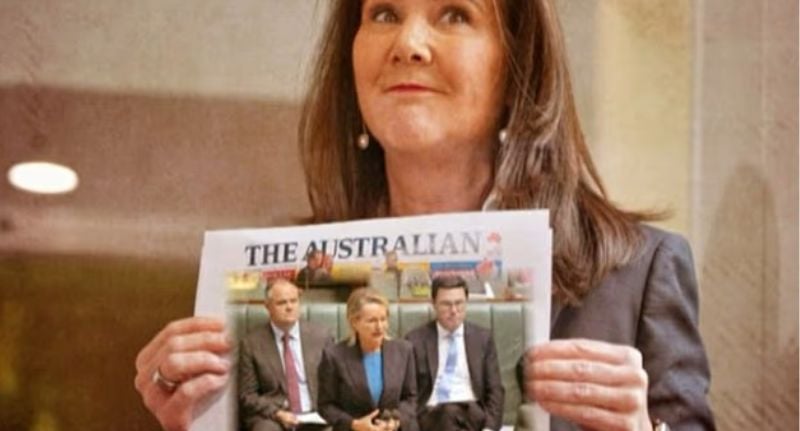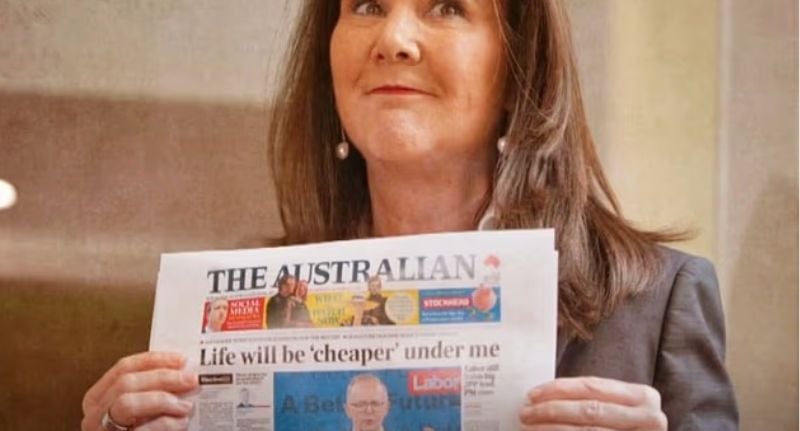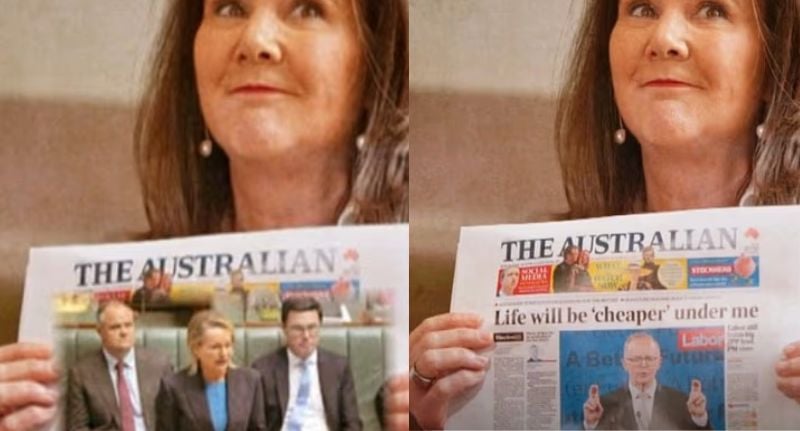The ABC has issued an apology after Insiders broadcast a digitally altered image of Liberal Senator Jane Hume – just days after the BBC was plunged into crisis over a separate editing scandal that forced the resignation of two of its top executives.
The BBC fallout began when director-general Tim Davie and head of news Deborah Turness stepped down following revelations that its flagship program Panorama had spliced together parts of a 2021 Donald Trump speech to make it appear as though he urged supporters to storm the US Capitol.
The edit, detailed in an internal dossier by former editorial standards adviser Mark Prescott, was described as a serious breach of editorial integrity.
Now, Australia’s public broadcaster is under its own scrutiny.

The edited image shown on Insiders.
ABC admits to misleading edit on Insiders
In a statement released on Monday, the ABC confirmed that its show Insiders had used an altered image of Senator Hume during its 9 November episode.
The image, shown in the program’s opening montage, depicted the Liberal senator holding The Australian newspaper with three of her Coalition colleagues on the front page.
The original 2022 photograph showed Hume holding a front page featuring Prime Minister Anthony Albanese alongside the headline “Life will be cheaper under me.”
In a statement posted online, the ABC said the edit was created “in an attempt to be satirical,” but acknowledged the change was “misleading and inaccurate.” It has since re-edited all versions of the program to remove the image.
The montage had been accompanied by a voiceover quipping that “the Coalition had made itself the story again” – a line that immediately drew complaints.
Hume lodged a formal protest shortly after the broadcast, prompting the ABC’s apology.

The original newspaper.
Editorial standards under pressure
The incident has revived debate over editorial oversight at public broadcasters and the risks of blurred lines between satire and reporting.
RMIT journalism professor Alexandra Wake told Mediaweek the episode was a reminder that no broadcaster is immune from errors in judgment, even those built on reputations for impartiality.
“We all like to believe that the BBC and the ABC would never do anything like this,” Wake said. “But there were a few factors that got in the way of good practice.”
She warned that a shift toward external production partnerships and freelance contributors can heighten risk if those individuals are not trained in an organisation’s editorial policies.
“The ABC does this too now – bringing in people from outside who aren’t always trained in the same editorial guidelines,” she said.
Wake said while human error is inevitable, accountability is not optional for publicly funded media. “We expect higher standards from public broadcasters when they’re funded by the public. Being fair is the foundation.”
BBC’s fallout deepens
In the UK, the BBC continues to navigate its biggest crisis in decades.
Outgoing director-general Tim Davie has urged staff to “fight for our journalism” while conceding “we have made some mistakes.”
President Trump has since threatened to sue the BBC for $1 billion (A$1.5 billion) in damages if his demands are not met.
Both scandals – one involving a doctored image, the other a doctored speech – have placed global attention on how editorial decisions are made inside public media institutions under increasing political and audience scrutiny.
